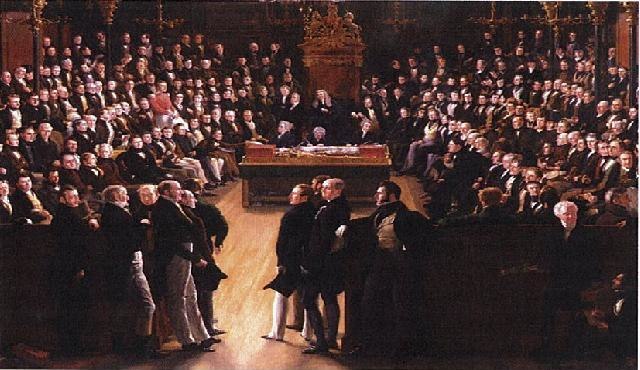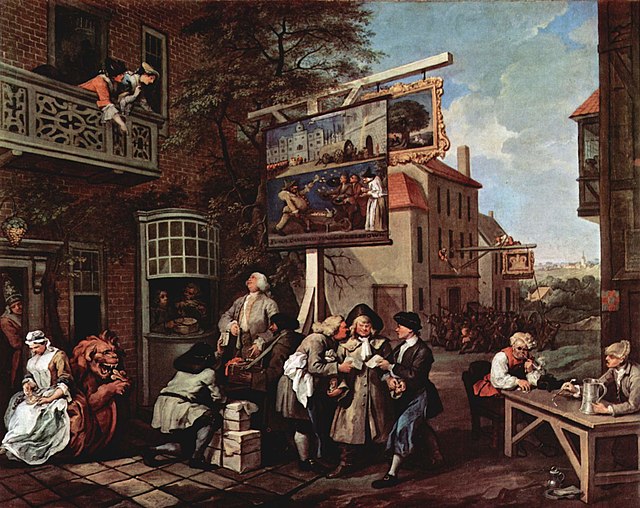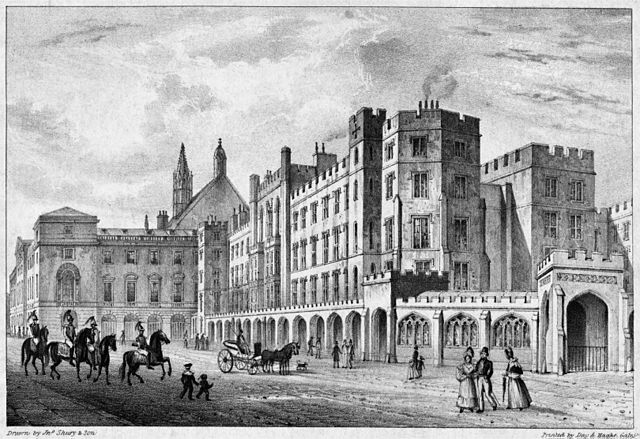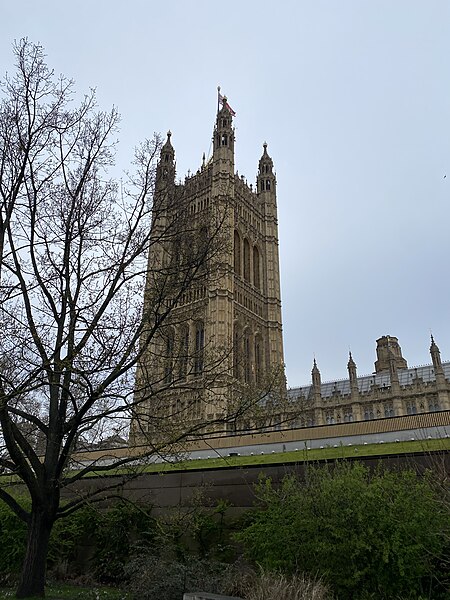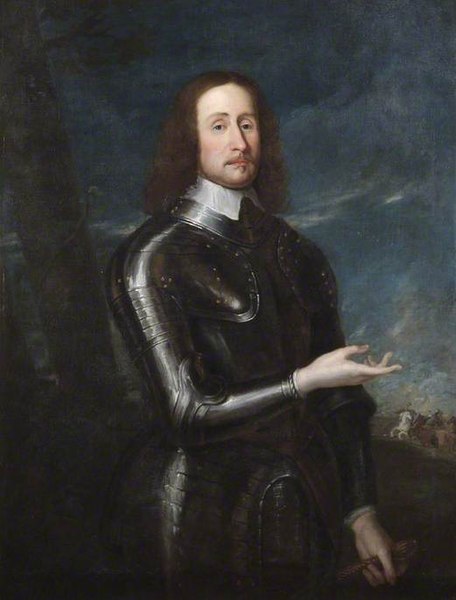The Representation of the People Act 1832 was an Act of Parliament of the United Kingdom that introduced major changes to the electoral system of England and Wales. It reapportioned constituencies to address the unequal distribution of seats and expanded franchise by broadening and standardising the property qualifications to vote. Only qualifying men were able to vote; the Act introduced the first explicit statutory bar to women voting by defining a voter as a male person.
Start of parchment roll of the Reform Act 1832, with royal assent of King William IV marked above Le Roy le veult.
A painting by Sir George Hayter that commemorates the passing of the Act. It depicts the first session of the newly reformed House of Commons on 5 February 1833 held in St Stephen's Chapel. In the foreground, the leading statesmen from the Lords: Charles Grey, 2nd Earl Grey (1764–1845), William Lamb, 2nd Viscount Melbourne (1779–1848), and the Whigs on the left; and Arthur Wellesley, 1st Duke of Wellington (1769–1852), and the Tories on the right. Currently in the
The House of Commons is the lower house of Parliament.
Canvassing for Votes, part of William Hogarth's Humours of an Election series, depicts the political corruption endemic in election campaigns prior to the Great Reform Act.
Parliament of the United Kingdom
The Parliament of the United Kingdom of Great Britain and Northern Ireland is the supreme legislative body of the United Kingdom, and may also legislate for the Crown Dependencies and the British Overseas Territories. It meets at the Palace of Westminster in London. Parliament possesses legislative supremacy and thereby holds ultimate power over all other political bodies in the United Kingdom and the Overseas Territories. While Parliament is bicameral, it has three parts: the sovereign, the House of Lords, and the House of Commons. The three parts acting together to legislate may be described as the King-in-Parliament. The Crown normally acts on the advice of the prime minister, and the powers of the House of Lords are limited to only delaying legislation; thus power is de facto vested in the House of Commons.
Parliament of the United Kingdom
Print of the Palace of Westminster, before it burnt down in 1834
Victoria Tower In London.
Leading 17th-century Parliamentarian John Hampden is one of the Five Members annually commemorated


